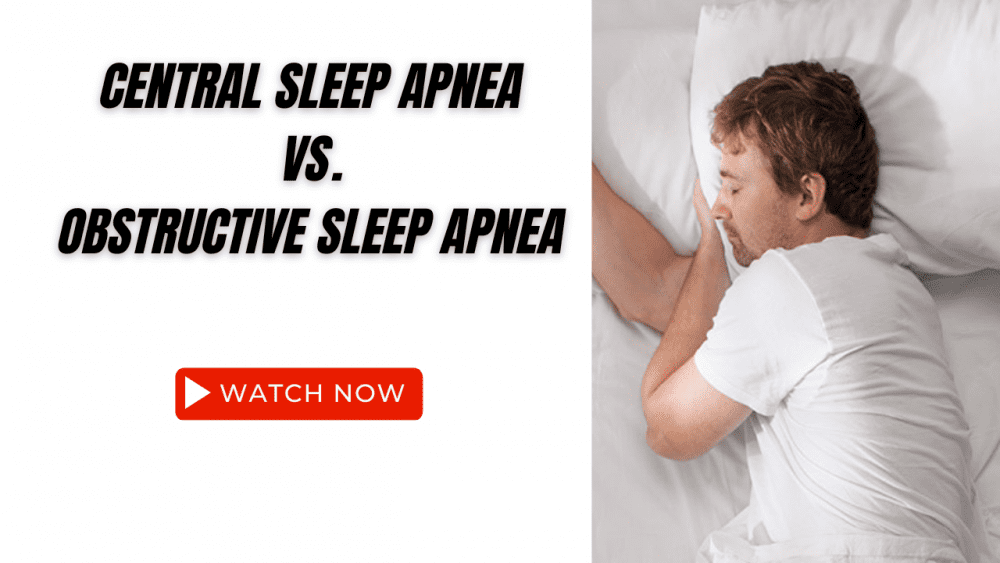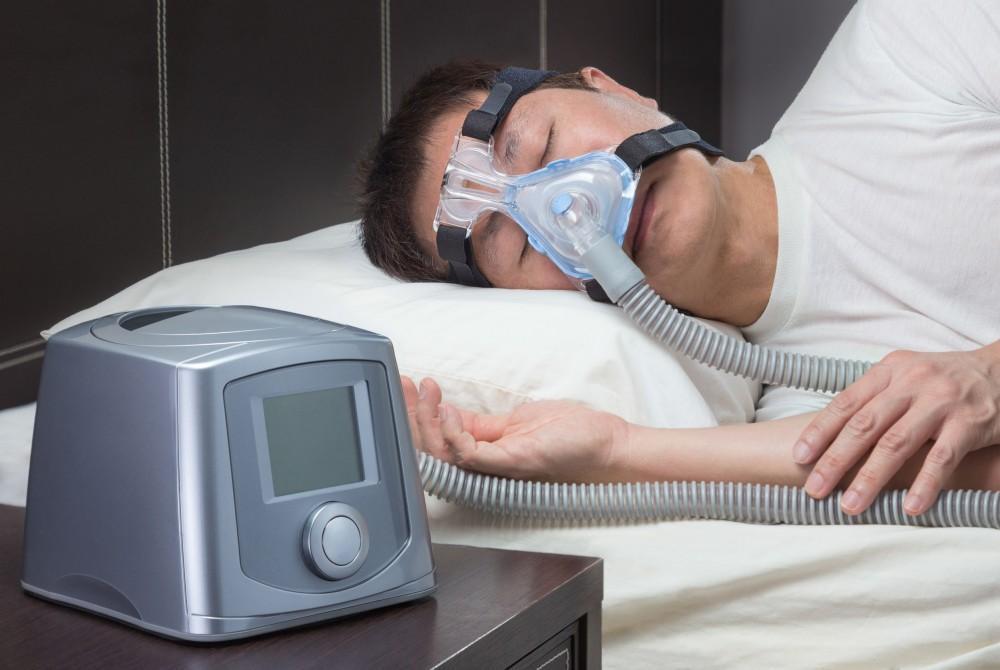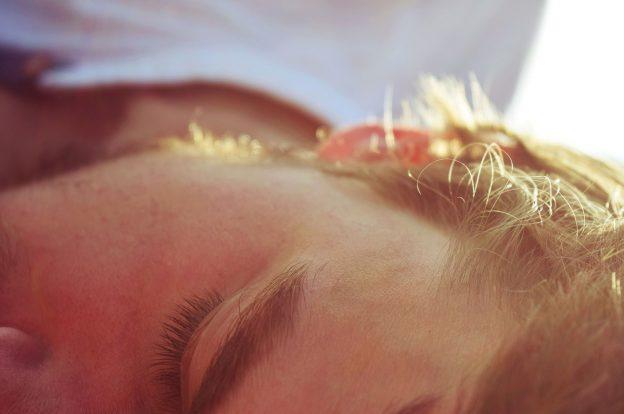
These Are the Long-term Effects of Poor Quality Sleep

You probably don’t need a sleep doctor to tell you that not getting enough sleep is terrible for you. Chances are, you’ve already felt the effects of a sleepless night the next day, or noticed that a week of tossing and turning leaves you feeling foggy, achy, and just kind of awful overall. But for many of us, a night or two — or even a month or so of less than high quality sleep doesn’t feel like a huge deal. Sooner or later the stress ends, you get a good long sleep-in, and you consider the problem solved. Unfortunately, it doesn’t work that way all the time. The term “sleep debt” refers to the amount of sleep you’re not getting, and can refer both to straightforward sleep loss and the harder to recognize effects of poor quality sleep.
The concept of “debt” makes a pretty tidy metaphor: you’re supposed to get around 7-9 hours of sleep a night, depending on your personal needs. When you fall below your particular sleep threshold, your brain incurs the “debt” and will look to make it up later. It’s part of why you may sleep deep and hard after an unusually restless night and why most of us sleep in on a Saturday morning. That’s fine if you usually get your ideal amount of sleep and just need a few hours to recoup the loss on the odd weekend, but what happens if you’re like most Americans and regularly fall short of your threshold? It isn’t “no harm, no foul”. Years of no sleep or low-quality sleep means could find yourself paying interest on your sleep debt in some pretty alarming ways.
Poor quality sleep ups your obesity risk
Sleeping feels pretty passive, but in truth, your body is pretty busy when you’re unconscious. You probably already know that sleep is when bodies and brains heal — that’s why we call deep sleep “restorative” — but even on a normal night, the glands in your body switch over to the night shift, releasing certain hormones into your bloodstream. Some of these hormones help metabolize the day’s fuel, and low quality sleep throws them off. Our bodies are evolved to help us survive in times of stress by reserving our energy stores, and your brain has no idea if you’re waking up frequently because you can’t stop thinking about bills, or because you’re being stalked by a noisy predator — it just assumes you’re fighting for life and reserves all of that energy in the form of fat.
On top of that, your brain may helpfully send out “hunger signals” when you’re awake to make sure you’re getting enough food to survive the night. All of this is compounded by the resulting fatigue, which can make it hard to exercise enough to burn off the excess. Now imagine years of this.
The long-term impact:
It’s a recipe for obesity later in life, and science backs it up: in 2008, researchers compiled every study done on weight gain and sleep loss. Of the 1031 they found, 36 were relevant to their goal of identifying a long-term connection. 11 of studies tracked children’s sleep habits into adulthood, and every single one of those showed a positive correlation between poor or erratic sleep patterns and obesity that continues into adulthood.
Long-term sleep deprivation wreaks havoc on your heart and brain
Think cardiovascular concerns — heart attack, stroke, arrhythmia, hypertension, etc — are for the elderly, or that you have to miss a whole lot of sleep to start stressing your heart out? You owe it to yourself to think again. Heart disease is the leading cause of death in men and women in every age group over 75 and is only barely surpassed by cancer for people aged 45-75.
And it does not take a whole lot to increase your risk when it comes to sleep quality. Even acute sleep loss — as in, one night of significantly less sleep — sent blood pressures and heart rates soaring in otherwise healthy men between 25-48 for the next day. That’s interesting, but it isn’t as damning as the data that shows a clear relationship between poor sleep patterns and cardiovascular morbidity.
The long term impact:
After adjusting for other risks including obesity, tobacco use, and snoring, the study above showed that people regularly getting less than 5 or more than 9 hours of sleep for 10 years prior to a cardiac or stroke event were up to 45% more likely to die of cardiovascular complications.
Lots of sleep debt stacks the diabetes deck
So many of these long term effects are inexorably intertwined. Obesity might contribute to snoring and sleep apnea, which can torpedo your sleep quality, which can contribute to increased obesity, a risk factor for heart attack. You can add diabetes to that knot of scary relationships. You already know that the body is busy, even at rest. One thing we’re always doing because our lives depend on it? Clearing glucose from our bloodstream with the help of insulin.
Well, unless you have diabetes, which inhibits your ability to do so. It’s a common, deadly disease that’s on the rise for a number of reasons. 29 million people have it, 1 in 4 people don’t even know, and a staggering 86 million have pre-diabetes, which means they need intervention to keep from developing the disease. One of the symptoms of that is reduced glucose intolerance. Can you guess what you have trouble doing if you don’t get enough sleep? Tolerating glucose.
The long term impact:
Scrutiny of the diabetes cohort found — just like the cardiovascular morbidity cohort — that getting less than 5 hours or more than 9 hours of sleep regularly made patients 2.5 times more likely to develop diabetes, when all other factors were accounted for. Those factors included weight, age, and even sleep apnea.
Sleep loss can lead to devastating memory loss
You likely don’t need a study to tell you that sleeplessness can affect memory recall. You’ve likely experienced this short term side effect of sleep deprivation yourself: a night or two of disrupted sleep makes you forgetful and fuzzy the next day. Anecdotal evidence aside, though, it’s well known that poor quality sleep negatively impacts cognitive function and short-term memory immediately. Playing catch-up on sleep is usually enough to lift the fog, but it leaves an insidious risk behind: Alzheimer’s disease.
Alzheimer’s is a neurodegenerative disease that robs a person of their memory and mental faculties, and there is no cure. One tell-tale sign of a brain affected by Alzheimer’s is the presence of amyloid plaques, which are sticky patches of protein that damage neurons and inhibit intercellular signaling at brain cell synapses. A recent study in mice showed that when mice were subjected to sleep deprivation, amyloid plaques developed more quickly than in mice that were allowed to sleep regularly. Sleep and dementia have been linked for a long time, partly because sleep deprivation can be considered an early sign of Alzheimer’s when other symptoms are present, and because Alzheimer’s patients often experience disordered sleep that develop after diagnosis.
The long term impact:
Now we have a growing body of evidence that poor sleep isn’t just a sign of Alzheimer’s, it may usher the disease in faster. We have a lot to learn about the relationship, but Alzheimer’s is a devastating, debilitating disease, and if there’s even a possibility that repaying sleep debt can stave it off, it’s worth it to speak to a sleep specialist.
Getting poor quality sleep as a child can spell emotional trouble later on, including addiction
A lot of childhood is about pathfinding and hardwiring. How children learn about, experience, and relate to their environment and surroundings will lay the foundation for how they move through life later on.
More and more children are experiencing sleep loss and deprivation, thanks to inconsistent bedtimes and ever-present screens. There are corollary relationships between sleep disorders and disruption in children and the incidence of ADHD diagnoses and childhood obesity, and the news doesn’t get better from there. Children who get less sleep are more likely to have lower self-esteem, experience disordered mood regulation and depression.
One study even suggests that in addition to fostering negative, depressive thoughts, poor quality sleep affects how children process positive experiences, perceiving them as less pleasurable or memorable.
That could be part of what makes drugs and alcohol so much more appealing as those kids enter adolescence and adulthood. Mood-altering substances have the dual “benefit” of pinging pleasure receptors and temporarily numbing dysphoria, and adults who have consistently slept poorly or not enough for a number of years are more likely to abuse them.
The long-term impact
Not getting enough quality sleep when you’re young starts laying a road map for trouble very early on. School becomes more challenging, mental health takes a real hit and carries a substantial suicide risk into adolescence, which can be compounded by a tendency to abuse substances like alcohol later on.
What’s most troubling about the quality sleep conundrum is that there’s evidence that points to a perception problem. That is, the less you get, the less you may feel like you need. You can’t train yourself to need less sleep or less quality sleep. Sleep debt just doesn’t work that way.
The good news is that these risks and relationships can be mitigated by fostering good sleep habits now. The health risks of poor quality sleep present almost immediately after acute deprivation, but they lower quickly, too.
To co-opt a popular phrase: the best time to make quality sleep a health priority was 10 years ago, but the second best time is now!
You Might Also Enjoy...


Dr. Kakar Products

Central apnea vs. Obstructive sleep apnea

Warning to Patients about Ozone Cleaners

Ways to Help You Keep Hope Alive

